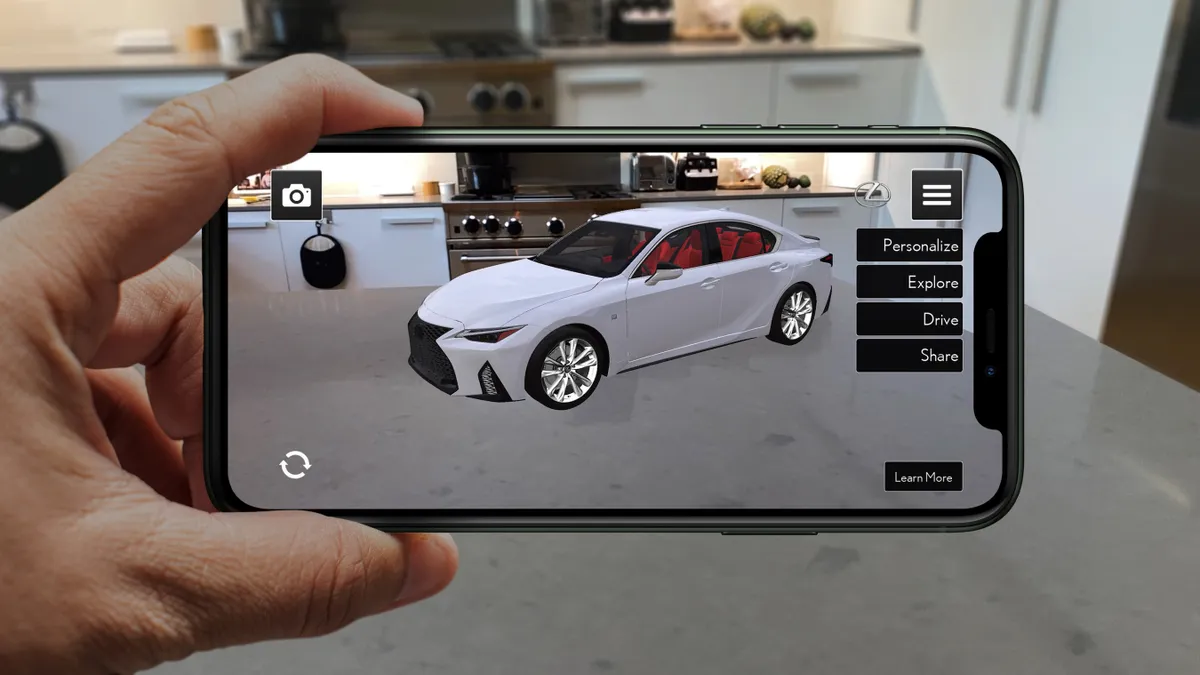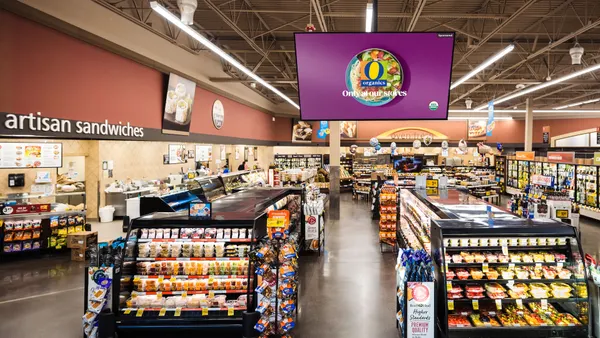Brief:
- Lexus released an app to give mobile consumers an immersive preview of the 2021 IS, a redesign of the luxury carmaker's sedan. Lexus AR Play uses augmented reality (AR) technology to let mobile users walk around a virtual 360-degree version of the car, open and close the doors and trunk and look inside the interior, per an announcement.
- Lexus AR Play has a gamification feature that lets people virtually drive the IS as if it were a remote-control toy. Mobile users can customize the appearance of the virtual car with eight color schemes and listen to an audio narration that explains its design, performance and safety features.
- The app also has 3D cutaways of key technical features, the engine and chassis, and lets people capture photos to share on social media. Lexus AR Play is available to download from Apple's App Store and Google Play, per the announcement.
Insight:
Lexus's AR app aims to engage potential car buyers with an immersive experience of its IS sedan that will arrive on dealer lots this fall. The carmaker wants people to take a fresh look at the luxury sedan, which it first introduced about 20 years ago, and spend time in a branded experience such as its gamified remote-control car. AR helps to deliver a more complete view of a product than videos or still images do, while giving customers greater control over their experience with a brand.
AR technology has seen a variety of marketing applications in the past few years as brands seek to engage audiences in an immersive customer experience (CX). The expanded use of the technology was forecast to boost spending on AR and virtual reality (VR), which immerses people in a completely computer-generated landscape, by 79% to $18.8 billion worldwide this year, per researcher International Data Corp. (IDC). AR/VR technologies have been effective in product demonstrations for cosmetics, fashion, automotive and home decorating brands.
As Lexus notes, the AR app is consistent with the idea of "genchi genbutsu," or "go and see for yourself," that centers on how people learn better through personal experience. As part of that theme, Lexus this year released a six-part podcast titled "Go and See" to give listeners a behind-the-scenes account of how it designs cars. Malcolm Gladwell, the New Yorker writer whose bestselling books include "The Tipping Point" and "Outliers," hosted the podcast that explored the Lexus headquarters and shadowed the company's executives and engineers.
Lexus is among the carmakers that have developed immersive experiences for consumers on their mobile devices, which have become increasingly important as the coronavirus pandemic has closed showrooms and led to more e-commerce activity.
Acura in February released a video game based on its "Less Talk, More Drive" campaign to showcase its focus on high performance. Its "Beat That" game on Facebook challenged people to race on six different tracks, driving cars featured in its TV commercial. Toyota last year rolled out a Spanish-language AR mobile ad that let smartphone users see an immersive, interactive view of its 2020 Corolla. Mercedes-Benz also released an AR filter on Instagram that let its users decorate their photos with computer-generated visuals. BMW in 2017 created a 3D car ad that let Snapchat users walk around an AR version of its BMW X2 and see more details.










